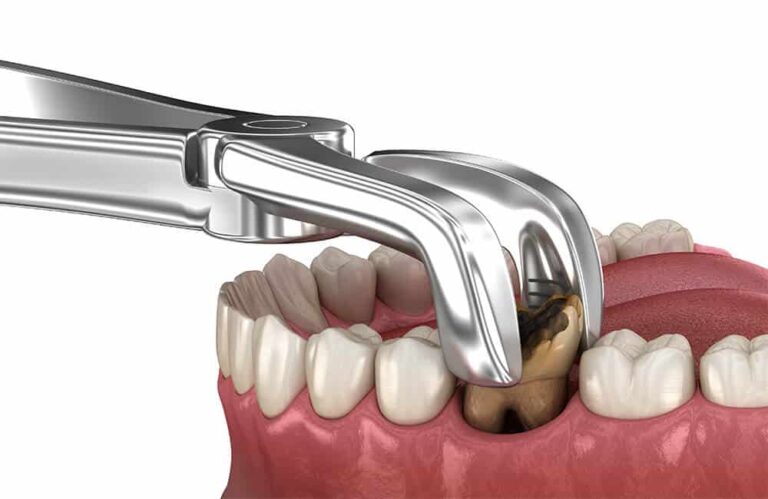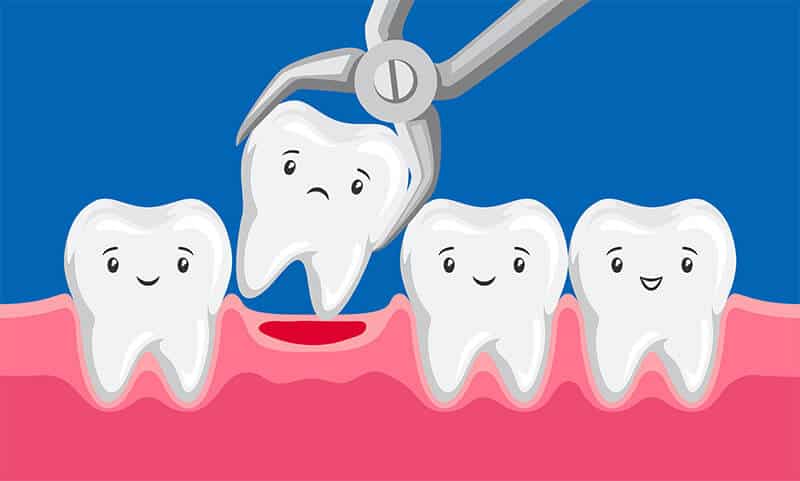Affordable & Convenient Teeth Extraction by Experts of Memphis
Dental Extraction –
An Ultimate Solution to Your Dental Problems!
Do you have badly decayed and unsalvageable teeth? Are you having wisdom teeth pain?
We can help you out by painlessly removing your teeth. We have the expertise to remove your teeth under sedation, and you will not even remember getting your teeth pulled. Yes, it is that painless!
Dr. Adatrow has expertise in dental extraction under sedation for more than 17 years. Additionally, he can also replace your removed teeth with his expertise in prosthodontics. This means you do not have to visit multiple dental clinics, but you can get removal and replacement done under one roof.


Benefits of Tooth Extraction
- Prevent the spread of infection from the damaged tooth.
- Reduce overcrowding because the removal of the tooth creates space.
- Relieves pain by removal of the infected tooth.
- It helps restore the functionality of a smile by removing decayed, broken, or infected teeth.
- It is usually performed after trauma to preserve other teeth.
- It helps in alleviating the complications from an impacted tooth.
Ready to get started?
Reach us now to schedule your consultation
Frequently Asked Questions on Tooth Extraction
What is tooth extraction?
Why are teeth removed?
- Excessive tooth decay
- Tooth infection
- Crowding of teeth
- Patients undergoing orthodontic braces might need tooth removal for creating space
- Patients undergoing chemotherapy might get compromised teeth removed
- Patients undergoing organ transplantation might need the removal of compromised teeth
- Severely broken teeth
- Unerupted wisdom teeth
How is simple tooth extraction performed?
When is surgical tooth extraction recommended?
- Badly broken teeth
- Teeth with curved roots
- Fragile or cracked teeth
- Teeth with broad or long roots
- Teeth merged in the jawbone
What are the types of teeth extractions?
- Simple extraction
- Surgical extraction
- Wisdom tooth extraction
What is a simple tooth extraction?
Sedating a patient makes them comfortable and more cooperative. This makes our work more accessible, useful and increases the quality of work. Ultimately, it results in a more positive experience for both the patient and the dentist. Hence, we prefer to offer sedation for our patients and increase the success of our treatments.
What is a surgical tooth extraction?
What measures do I have to take after the dental extraction procedure?
- Rest for 48-72 hours after the dental implant surgery.
- Sleep in a reclining position of 45 degrees by placing pillows under your head. This helps to reduce the swelling.
- Ice packs – put ice packs on the sides of your face, 20 minutes on, 20 minutes off. It is essential to apply ice packs for the first two days after the surgery to help with swelling.
- Take your prescription medications as instructed.
- You may feel weird because of the anti-anxiety medicine you took before the operation. It usually subsides within 24 hours, but sometimes it can last up to 1 week.



